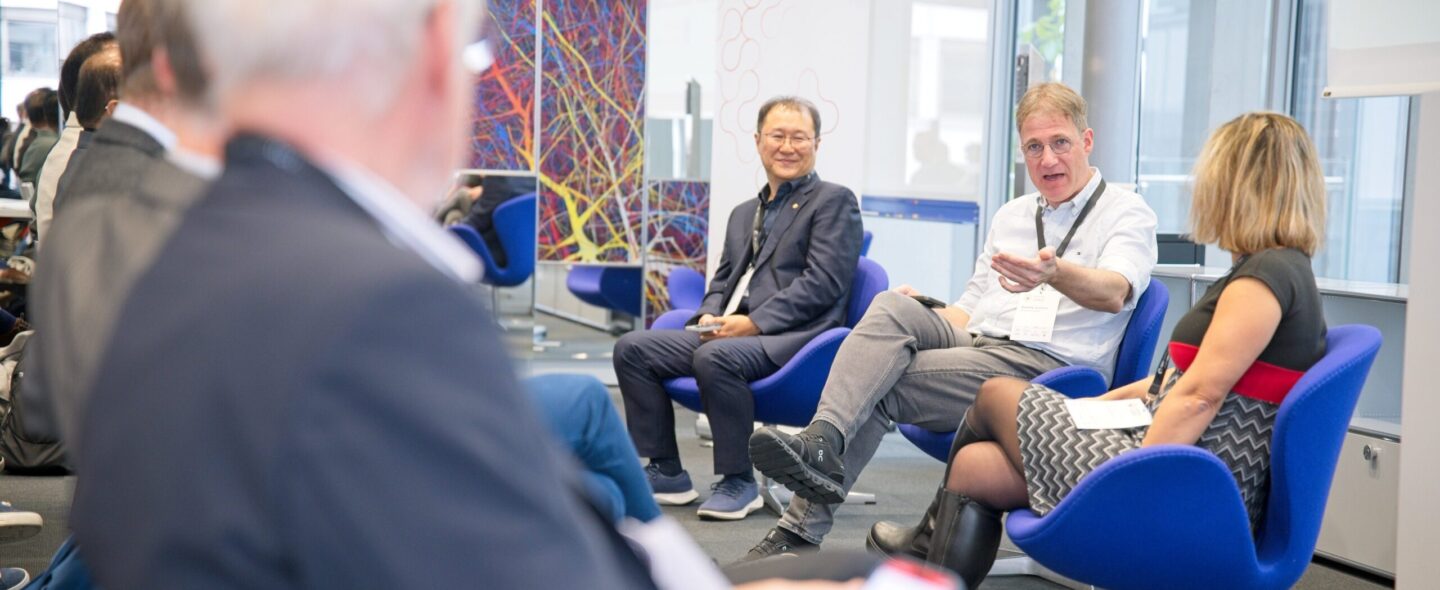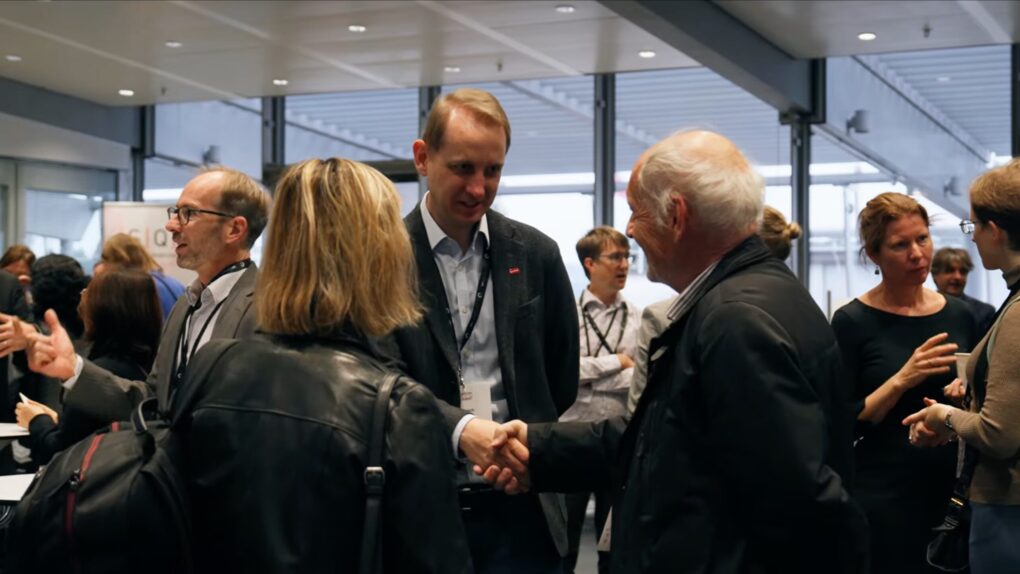
November 10, 2025 | Global
What are the best practices in building robust quantum ecosystems at the local and national levels, and how can we better connect them across borders? The Swissnex Quantum Summit 2025 welcomed over 100 guests from 16 countries to Geneva on October 13, 2025, to discuss these topics. Participants from government, industry, research, accelerators, investment funds, and more gathered to share their insights and seed potential collaborations. In a mix of panels, flash talks, and conversation cafés, participants shined a spotlight on their own initiatives and engaged in lively debate on how to accelerate breakthroughs that can forge a positive, quantum-enabled future for all.
The summit was one element of Swiss Quantum Week, a new series inviting the world to Geneva to connect with Swiss excellence in quantum research, innovation, education, and governance. International visitors were able to attend Quantum Industry Day in Switzerland, the GESDA Summit, and other quantum-related events.
Here are 25 key insights from the Swissnex Quantum Summit, along with a video providing participant perspectives.
From Research to Innovation
- Quantum computing, in contrast to sensing or communication, remains primarily a research field for now – and we should expect the first useful computing applications to come in answering scientific questions.
- Many academic ecosystems are trying, but could do much more, to foster an entrepreneurial culture for their researchers and quantum physicists.
- The rush to publish in academia sometimes comes at the cost of carefully developing IP.
- The early stage of quantum computing leaves room for novel platforms and architectures to still emerge—such as the 2D trapped-ion arrays being developed by ZuriQ.
- Distributed systems will be key to scaling quantum computers, but the hype around networked quantum computers may overshadow the fundamental improvements still needed in the quality of qubits.
Investing in Quantum
- Funding from the research community and governments is essential for the early success of quantum technologies, since they are key early adopters.
- The quantum technology industry is young enough that it is still a useful strategy to spread small amounts of funding to a broad range of projects. For example, Switzerland pursues this through a small voucher model.
- The hype in the quantum field can be helpful to secure resources, but comes with risks— as patience from investors and governments may wear thin.
- Mainstream investment pools such as pension funds could be an undertapped source for investments into quantum.
Building a quantum economy
- Many component manufacturers for quantum devices are already profitable, and we should expect acquisitions and consolidation in the supply chain.
- As with any emerging field, certifications and standards will be key to creating trust in quantum technologies—but can be hard to achieve when the technology is developing so quickly.
- The size of quantum ecosystems is small but growing. For example, around 2,000 people in Switzerland earn a paycheck working on quantum topics – a large increase from a few years ago, but a small fraction of major industries such as life sciences, which employs 135,000 in Switzerland.
- Right now there is a lack of “time crunch” for expected results in quantum, in contrast to other technologies like AI. This creates a useful advantage for companies and researchers still tinkering to find truly new discoveries.
Use cases and applications
- In comparison to computing, quantum networking and measurement technologies are more mature and already seeing real-world applications: from atomic clocks to navigation and quantum key distribution.
- Industries such as finance and biopharma are eager to take advantage of new quantum technologies—but relevant applications can be hard to find.
- Companies are less willing to invest in quantum for small, incremental improvements in computing power. The true value proposition comes from solving a problem that is impossible on classical machines.
- New quantum hubs—such as Quantum City in Calgary—are taking a solution-centric approach, starting with the problems that industries face, and then outlining relevant quantum solutions.
Talent development
- The “valley of death” applies not only to funding but also to talent development—getting the right mix of people at the right time is a huge challenge.
- We need more talent development in algorithms, as well as in vocational training. To achieve this, we can also think creatively—for example by ‘seconding’ employees to quantum companies to learn specialized skills.
- We need to train engineers to have a strong quantum background without skilling them out of engineering roles.
- India produces around 90,000 quantum-educated college graduates per year. This amounts to a huge and underutilized talent pool.
Quantum for the good of humanity
- Quantum technologies can be applied around the globe—but we should distinguish between quantum for the Global South and quantum by the Global South.
- Quantum can be used for “lean” and resource-light innovations with high social value around the world, such as mobile MRI machines.
- Quantum technologies, like AI, will also rely on wider economic infrastructures as the technology scales, such as electricity and IT.
- Quantum machines, especially computers, are very energy intensive. We must focus on sustainability and seek to avoid the Jevons Paradox, in which increased efficiency is offset by skyrocketing usage.
Interested to learn more about Swissnex and Swiss quantum? The Swissnex Quantum Summit is part of Swissnex’s Project Quantum, which connects Switzerland and the world in quantum technologies. As part of our activities, we have published a mapping of the Swiss quantum ecosystem. If you’re interested in connecting with us, don’t hesitate to reach out to [email protected].
-
![]()
Swissnex Quantum Summit 2025
